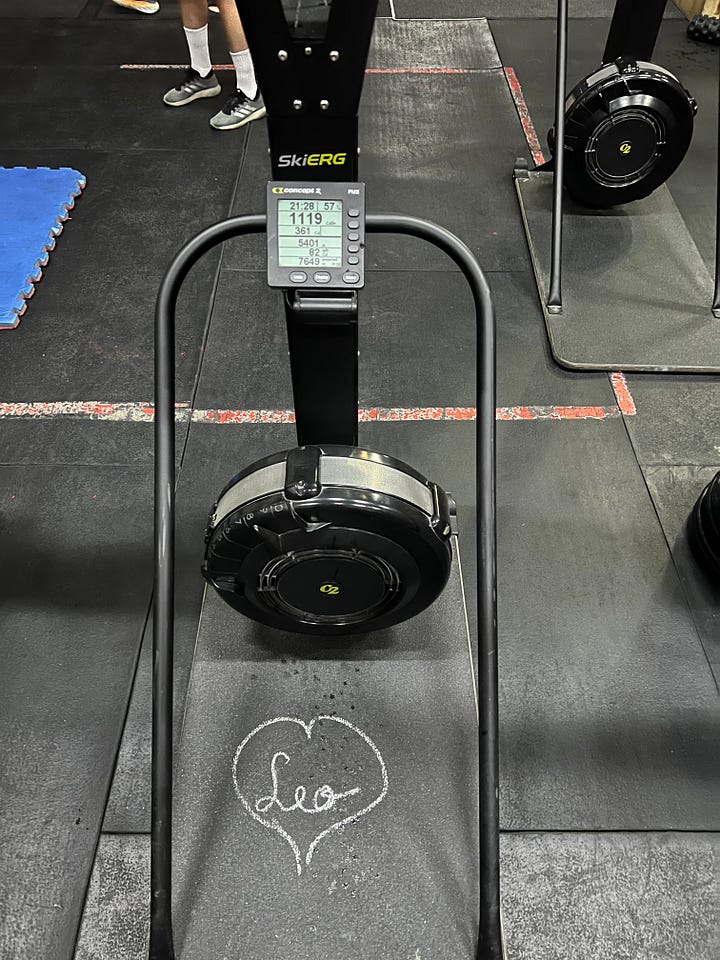#78: From Peer to Manager
How to handle transitioning from being a colleague to becoming a team leader
👋 Hey, Leo here! Welcome to the Level Up Ladder. Each week, I explain the concepts needed to become a better tech leader and grow your career. Subscribe to get every issue.
Hey friends,
Welcome to the 78th edition of the “Level Up Ladder” newsletter.
One of my big goals for this year was growing this newsletter. Unfortunately, I didn’t have the time to focus too much on it, but I hope to change this in the next couple of months (we’re 2.5 months away from 2025, crazy!)
This means that I will probably move away from Substack to another provider, one that’s more flexible and would give me access to more advanced tools to grow my following. For all of you who are reading this exclusively on the Substack app, I will probably continue to paste the content on the site, too. I’ll figure it out in the next couple of weeks when I also want to get my website up.
I spent last Saturday evening with some friends at a winery and came back the next day for a nice movie night with my wife and other friends.
I had a pretty good week at the gym, breaking my personal record for the hang power clean and deadlifting 130 kg after a few years. It’s probably based on the fact that I slept quite well and a lot these last few days.
I have the Hyrox Pro competition in less than 1.5 months, and I have to get in shape soon enough.




From Peer to Manager: Navigating the Transition
One of the main challenges I faced when I became a team leader was the fact that I had to coordinate my former colleagues.
And it’s not something out of the ordinary. Chances are you will also face this at some point. Picture this: yesterday you were joking around with your colleagues at lunch, and today you’re responsible for their performance reviews.
Talk about a plot twist!
This transition is never easy.
Challenges you might face
Shift in Dynamics
Most of your colleagues will perceive this as you “switching sides.” You’re no longer “one of them.” Some of them might become resentful for this reason only.
Others will question your naming in that position, because they thought they deserved it more. And a third category will expect special treatment because you were "bros.”
Imposter Syndrome
You will definitely question your readiness for the role, especially when managing people with more experience than yours.
Balancing Friendship and Leadership
You’ll need to find a way to keep being friendly without compromising your ability to make tough decisions.
Establishing Authority
You need to assert yourself as a leader from the start without coming across as arrogant or power-hungry.
Tips for a Smooth Transition
1. Have Open Conversations
Start with individual conversations with each team member. Be transparent about the change in your role and how it might affect your relationship. Listen to their concerns and expectations.
Don’t be afraid of being vulnerable when talking about your weaknesses and your need for help. Ask for their support in creating a high-performance team.
2. Set Clear Boundaries
Establish professional boundaries early on. Make it clear that while you value your relationships, your primary responsibility now is to lead the team effectively.
3. Lead by Example
Show your commitment to your new role through your actions. Be the first to arrive, the last to leave, and always be prepared for meetings.
4. Seek Feedback
Ask for feedback from your team about your leadership style. This shows humility and a willingness to grow, which can earn you respect.
5. Be Consistent
Treat all team members fairly and consistently. Avoid showing favoritism to those you were closest to before your promotion.
6. Embrace Your New Role
Don't apologize for being in a leadership position. You were chosen for a reason. Embrace your new responsibilities with confidence.
Ask people how they feel about you being their boss. If there are colleagues who think they deserved the position, offer to have a conversation with your manager on what was the criteria and the reasons they chose you instead.
Then, work with that colleague to create an improvement plan to get a promotion later on.
Remember: You grow when your team members grow.
7. Get help
It’s a delicate situation, as handling your ex-colleagues is just a small part of the whole process of becoming a team leader.
Talk to your manager about getting help from a coach or a mentor.
Invest in your leadership skills through books or courses. Share what you learn with your team to grow together.
Remember: It's a Process
Transitioning from peer to manager doesn't happen overnight.
It's a process that requires patience, self-awareness, and continuous effort.
There will be awkward moments and missteps along the way, but that's all part of the journey.
If you want to be a leader, you need to accept that you will often need to step outside your comfort zone. It comes with the territory.
Think about a time when you had to adapt to a new role or responsibility.
Have you made this transition yourself?
What challenges did you face, and how did you overcome them?
As always, I'd love to hear your thoughts and experiences.
My top posts of the week:
Thank you for reading, and I hope you’ll join me in the comments section for further discussions!
Leo
P.S. If you enjoyed this piece and want to support my writing, please consider sharing it.
Thank you so much for being here!
P.P.S. If you want to read my content daily, don’t forget to follow me on LinkedIn.



